GENDERING GLOBAL CONFLICT
Gendering
Global Conflict
Toward a Feminist Theory of War
LAURA SJOBERG

Columbia University Press
New YorkColumbia University Press
Publishers Since 1893
New York Chichester, West Sussex
cup.columbia.edu
Copyright 2013 Columbia University Press
All rights reserved
E-ISBN-978-0-231-52000-3
Library of Congress Cataloging-in-Publication Data
Sjoberg, Laura, 1979-
Gendering global conflict : toward a feminist theory of war / Laura Sjoberg.
pages cm
Includes bibliographical references and index.
ISBN 978-0-231-14860-3 (cloth : alk. paper)ISBN 978-0-231-14861-0 (pbk. : alk. paper)ISBN 978-0-231-52000-3 (e-book)
1. Women and war. 2. Feminist theory. 3. International relations. I. Title.
JZ6405.W66S56 2013
303.6601dc23
2012050816
A Columbia University Press E-book.
CUP would be pleased to hear about your reading experience with this e-book at .
COVER DESIGN: Milenda Nan Ok Lee
References to websites (URLs) were accurate at the time of writing. Neither the author nor Columbia University Press is responsible for URLs that may have expired or changed since the manuscript was prepared.
To Ann Tickner
my role model as a scholar and a woman
and
Hayward Alker
who still challenges me
Contents
When I initially undertook writing this book, I saw it as the book that I went to graduate school to writea sort of magnum opusa statement on how feminism(s) think about war(s). Now that it has been written, I realize (and hope) that it brings up more questions than answers, and lays a foundation for more theoretical and empirical work. The scope of the project ended up far smaller than my initial plans and is perhaps still too ambitious. The final draft inspires reflection, debate, frustration, and rethought in meand I hope that it will in readers.
It literally took a village to produce this book, and I am indebted to the support of more people than I can ever manage to thank. I appreciate the support and resources of the Department of Political Science at Virginia Tech, where this project began, and the Department of Political Science at the University of Florida, where it was completed. Financial support and research space for parts of this project were provided by a number of great organizations, including the Institute for Society, Culture, and the Environment at Virginia Tech, the Women and Public Policy Program at the Kennedy School of Government at Harvard University, and the Political Science Department at North Carolina State University. Without that support, this book never could have been completed.
first was first published as What Waltz Couldnt See: Gender, Structure, and War, International Theory [2012], 4[1]: 138.) Also, over countless drafts, a number of anonymous reviewers provided incredibly helpful feedback. Of course, all mistakes remain my own.
This great support community made it possible for me to do a lot of the work for this book in rough times, personally and professionally. Over that (long) time, I have found multiple sources of strength and energy to work: the Study of the United States Institute Participants, the UF Mock Trial LitiGators, the Gainesville Bridge Club, and the sushi (with avocado and mango) from Dragonfly. My three Chihuahuas provided a sense of calm as I worked in tumultuous times. April, my oldest, makes war first and thinks second. Gizmo, the middle child, continually teaches me about how those who have lost the fight for dominance can still live a happy and fulfilling life. Max, the puppy, shows me daily that even the most aggressive actors have a soft side.
Those who have read my other acknowledgments know that I tend to end them with a story that inspired the work in this book and my research program in feminist international relations. This inspiration came a couple of years ago now, but it was important in getting this book finished. Having submitted an application for employment to a certain (acquaintance) faculty members university, I ran into him at a conference. He told me that, no offense, his department would not be hiring me. After I did not answer, he volunteered an explanation. It turned out that, while my publication record was superb, his department would be hiring someone who worked in a credible area of political science. He then asked if I had given any thought to getting over my gender phase. I did not say anything to him, hoping that this book (when it came out) would effectively communicate the message: No.
In 1910, Norman Angell instructed political leaders that, in a world of increasing economic interdependence, war could never avail us anything and that, therefore, any state that made war would be foolishly casting aside its self-interest.
Some scholars argue that war is (again) declining in the twenty-first century,
Still, no single theory of what wars are and why they happen has become dominant. As Hidemi Suganami explains, this may be because war is a multi-causal phenomenon, not only in the oft-noted sense that a variety of factors contribute to the making of war, but also in the less obvious sense that there are multifarious causal paths to war. Perhaps scholars can agree that wars meaning and causes are complex, and its consequences often brutal. Still, most theoretical approaches to the study of war remain widely divergent and find little common ground.
Despite our collective inability to find a consensus framework to understand or disaggregate war causation, wars continue to plague global politics. It is estimated that war caused more than two hundred million deaths in the twentieth century, and conflicts rage around the world in the early twenty-first century. The financial costs and human casualties of war have been of increasing concern to scholars and policy makers; the war puzzle is both as urgent and as puzzling now as it has ever been.
GENDER AND THE WAR PUZZLE
This book argues that this omission is a grave error, because the meanings, causes, and consequences of war cannot be understood without reference to gender. Using gender as a category of analysis transforms the study of war.
In answer to that criticism, and in an attempt to reveal and analyze gender as a crucial piece of the war puzzle, this book engages feminist war theorizing.
A FEMINIST APPROACH TO THE STUDY OF WAR
It is important, at the outset, to outline what a specifically feminist approach to war might entail. First, it is necessary to note that there is not one feminist approach to IR theory and therefore not one feminist approach to war.
Feminist work from a realist perspective is interested in the role of gender in strategy and power politics between states.
These various feminist approaches to IR share an interest in studying gender subordination in global politics. Defining gender, however, presents another challenge. Gender is not a box that we check on our taxes or membership in the traditional biological sex categories, male and female. It is intersubjective because genderings, while diverse, constitute a shared cognition and consensus essential in shaping our ideas and relationships, even when we are unaware of their role in our thoughts, behaviors, and actions.
This relationship between masculinities and femininities constitutes and is constituted by gender subordination in global politics.
Using this understanding of gender, the feminist approach to war in this book combines the tools of realist (power relations), liberal (looking for women), critical/constructivist (the influence of gender as an idea), poststructuralist (discourses of gender), and postcolonial (the intersection of gender/race/imperialism) feminisms in order to analyze the meanings, causes, and consequences of war. It is easiest here to think of gender as a lens through which the phenomenon of war is studied.

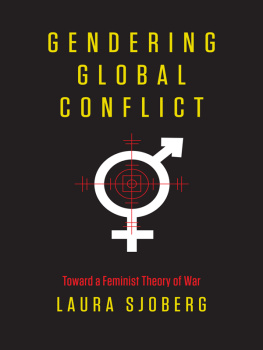
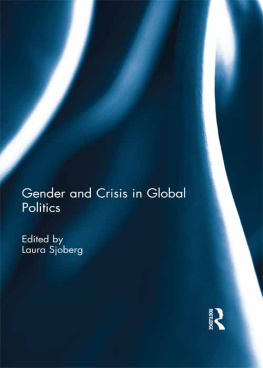


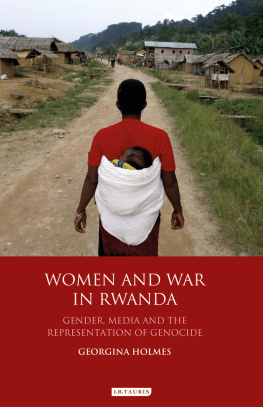
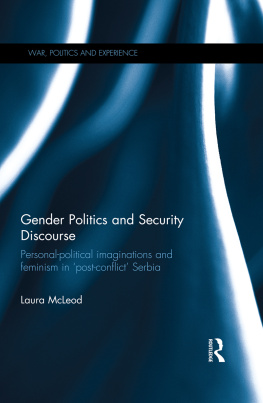
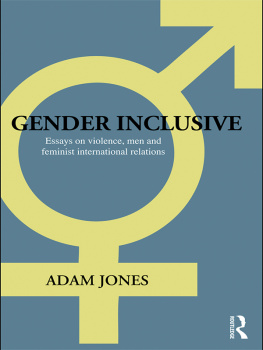
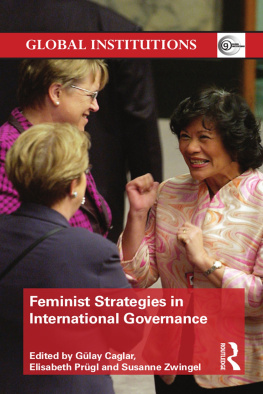
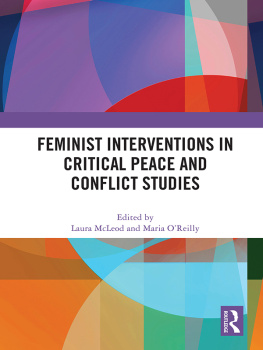
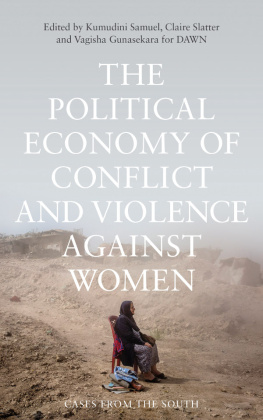

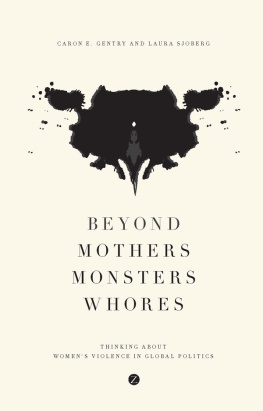
 Columbia University Press New York
Columbia University Press New York